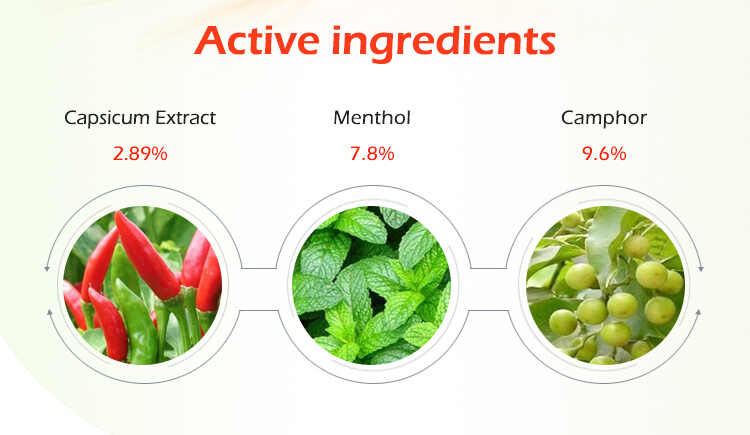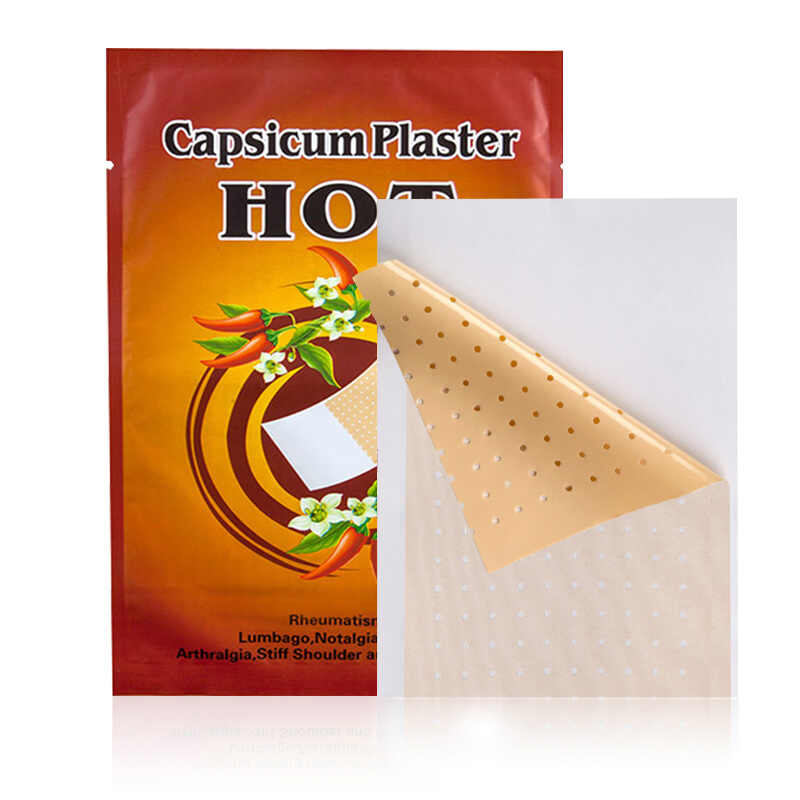Can I Sell Natural Capsicum Plasters in the EU or USA? A Comprehensive Guide for Brands
Expanding your wellness brand by selling Natural Capsicum Plasters in major markets like the European Union (EU) and the United States of America (USA) presents a significant opportunity — but it also comes with regulatory, compliance, and market entry challenges. As a startup or established brand seeking a trusted Natural Capsicum Plaster Manufacturer or Natural Capsicum Plaster OEM, understanding the legal and practical requirements is critical before launching your Custom Natural Capsicum Plaster or Private Label Natural Capsicum Plaster in these lucrative regions.
This guide explains everything you need to know about selling Natural Capsicum Plasters in the EU and USA. We will break down:
Regulatory frameworks and classifications
Product registration and compliance requirements
Labeling, safety, and quality control standards
How to choose the right Natural Capsicum Plaster Supplier to help you succeed

1. Understanding Natural Capsicum Plasters and Their Regulatory Classification
Natural Capsicum Plasters are topical products designed to relieve pain by utilizing capsicum extract’s warming and analgesic properties. These patches are typically classified differently based on their ingredients, intended use, and claims.
EU Classification:
In the EU, capsicum plasters may be classified as medical devices (Class I or IIa) if they claim to provide pain relief through a physical or pharmacological effect.
If the plaster is marketed purely as a cosmetic or wellness product, it may fall under the Cosmetic Products Regulation or Traditional Herbal Medicinal Products Directive (THMPD), depending on ingredients and claims.
Classification impacts the registration, conformity assessment, and compliance procedures you must follow.
USA Classification:
The FDA typically classifies capsicum plasters as over-the-counter (OTC) topical analgesic products.
Depending on active ingredients and claims, they may be regulated under the FDA OTC Monograph system (e.g., Category II for external analgesics) or require New Drug Application (NDA) approval.
Claims and formulations must comply with FDA regulations on safety, efficacy, and labeling.
2. Selling Natural Capsicum Plasters in the EU: Key Requirements
a. CE Marking and Medical Device Regulation (MDR)
If your Natural Capsicum Plaster OEM classifies the product as a medical device, you must:
Ensure the product meets EU MDR 2017/745 requirements.
Conduct risk assessments, clinical evaluations, and safety testing.
Prepare a Technical Documentation File proving compliance.
Register with an EU Notified Body for CE certification and affix the CE mark.
Implement a Post-Market Surveillance system.
b. Cosmetic or Herbal Product Compliance
If marketed as cosmetics or herbal remedies:
Comply with the EU Cosmetic Regulation 1223/2009 or Traditional Herbal Medicinal Products Directive.
Submit a Cosmetic Product Safety Report (CPSR).
Register the product in the Cosmetic Products Notification Portal (CPNP).
Ensure labeling complies with language, ingredient listing, and safety warnings.
c. Packaging and Labeling
EU regulations require clear labeling including:
Ingredient lists with INCI names
Warnings and directions for use
Manufacturer and importer details
Batch number and expiration date
3. Selling Natural Capsicum Plasters in the USA: Key Considerations
a. FDA Regulations and OTC Monograph Compliance
Capsicum plasters typically fall under the FDA’s OTC External Analgesic Monograph (21 CFR Part 348).
Your Natural Capsicum Plaster Manufacturer must use approved active ingredients and follow prescribed concentration limits.
The product labeling must include drug facts, indications, warnings, and usage instructions exactly as required.
b. Facility Registration and Listing
The manufacturer or importer must register the facility with the FDA and list the product.
All facilities involved in the production or packaging process should be FDA inspected.
c. New Drug Application (NDA)
If your formulation or claims fall outside the OTC monograph, you may need to file an NDA, which requires clinical evidence and FDA approval — a costly and lengthy process.
d. Labeling Compliance
Labels must follow FDA guidelines, including Drug Facts, active ingredients, warnings, and directions for safe use.
Non-compliance can lead to import refusals or enforcement actions.
4. Choosing the Right Natural Capsicum Plaster Supplier for EU and USA Markets
Selecting a Natural Capsicum Plaster Supplier with proven expertise in these regulatory environments is essential:
Certification Support: Ensure the supplier is GMP-certified, FDA-registered, and able to assist with CE marking or OTC compliance.
Quality Assurance: Look for ISO 13485 and ISO 9001 certifications to guarantee medical device or quality management system compliance.
Product Customization: Work with a Custom Natural Capsicum Plaster OEM capable of formulating according to your target market's requirements.
Labeling and Documentation: Suppliers should provide compliant labels, MSDS, and technical documentation needed for registration.
Regulatory Guidance: Trusted suppliers can assist with regulatory filings, clinical data, and certification to streamline market entry.
5. Key Challenges to Be Aware Of
Changing regulations: Both the EU and USA frequently update their regulatory frameworks — stay informed.
Product classification ambiguity: Misclassification can cause delays, fines, or product recalls.
High documentation burden: Prepare for extensive paperwork, safety evaluations, and testing.
Import restrictions: Non-compliant products risk customs seizures or bans.
6. Why Partnering with a Qualified Natural Capsicum Plaster Manufacturer Matters
A reputable Natural Capsicum Plaster Manufacturer ensures your product:
Complies fully with applicable regulations
Is manufactured under strict quality control
Uses safe, tested ingredients in effective concentrations
Includes correct labeling and packaging for the destination market
Your supplier should function as a strategic partner, offering OEM, Custom Natural Capsicum Plaster, or Private Label Natural Capsicum Plaster services with full regulatory support.
Frequently Asked Questions (FAQ)
1. Can I sell a Natural Capsicum Plaster in the EU without CE marking?
Answer: Only if the product is classified outside medical devices (e.g., cosmetics or herbal products) and meets the respective regulations.
2. Is FDA approval required for capsicum plasters in the USA?
Answer: Usually not if the product complies with the OTC Monograph. Otherwise, an NDA may be required.
3. How can I verify my Natural Capsicum Plaster Supplier’s certifications?
Answer: Request copies of GMP certificates, FDA registration numbers, ISO certifications, and CE documentation.
4. Can a Natural Capsicum Plaster OEM help with market registration?
Answer: Many reputable OEMs provide regulatory assistance and can guide you through compliance steps.
5. What labeling information is mandatory in the USA and EU?
Answer: Both require ingredient disclosure, usage instructions, warnings, manufacturer details, batch numbers, and expiry dates.
Conclusion
Selling Natural Capsicum Plasters in the EU and USA is entirely possible but demands strict compliance with complex regulatory frameworks. Partnering with a knowledgeable Natural Capsicum Plaster Supplier and a certified Natural Capsicum Plaster Manufacturer or OEM is your best path to a smooth market entry.
With correct certifications, labeling, and product classification, your Custom Natural Capsicum Plaster or Private Label Natural Capsicum Plaster can thrive in these competitive, high-potential markets — building your brand’s reputation and expanding your global footprint confidently.






